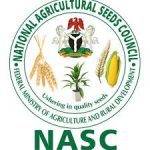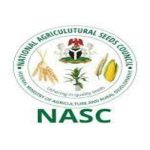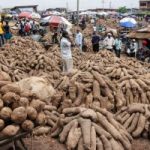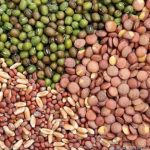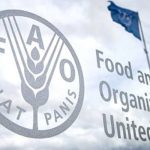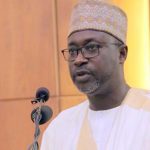The Federal Executive Council has approved a revised National Agricultural Seed Policy for the country.
Mohammed Mahmood, Minister of Agriculture and Rural Development, revealed this to State House Correspondents while briefing them on decisions reached at the council’s meeting this week, presided over by President Muhammadu Buhari.
The Minister explained the reason for the revision: “Why the revision?” What about seeds? What you sow is what you will reap. With the current rate of technological advancement, seeds are constantly being upgraded to standardize four to five vitamins. There’s also the question of genetically modified organisms, or seeds.
“So, this revision seeks to confirm with global best practice in yield. Our farmers must have access to best quality seeds that have been fortified, seeds that can produce the yield that will be worth their while, seeds that can produce again and the produce that come can compete in the world market. This is the basis for this particular policy,” the Minister explained.

He said the National Agricultural Seed Council will be responsible for the implementation of the policy.
“The implementing agency is the National Agricultural Seed Council of Nigeria. The same agency works with the department within the Ministry, also works with other agencies and MDAs that are also involved in some ways with agriculture, work with civil society organizations, international agencies,” he added.
Mahmood noted with pride that annually, Nigeria holds a seed summit that places a searchlight on seeds that come into the country from other nations.
He said: “Nigeria every year holds a summit that we call Seed Connect. This is an international summit that discusses and focuses on improving development in seeds from around the globe. So, seeds are really very important, very critical, as you all know the agricultural sector forms a great part of the GDP of this country and all that we focus on is smallholder farmers. We distribute good quality seeds to them for free.
“We make sure that any seed that is coming into the country also, is subjected to decentralization. We have a system that is called Codex, and we’ll make sure all seeds that will be taken to the market have these Codex, they have gone through our screening.”
The Federal Executive Council has approved a revised National Agricultural Seed Policy for the country.
Mohammed Mahmood, Minister of Agriculture and Rural Development, revealed this to State House Correspondents while briefing them on decisions reached at the council’s meeting this week, presided over by President Muhammadu Buhari.
The Minister explained the reason for the revision: “Why the revision?” What about seeds? What you sow is what you will reap. With the current rate of technological advancement, seeds are constantly being upgraded to standardize four to five vitamins. There’s also the question of genetically modified organisms, or seeds.
“So, this revision seeks to confirm with global best practice in yield. Our farmers must have access to best quality seeds that have been fortified, seeds that can produce the yield that will be worth their while, seeds that can produce again and the produce that come can compete in the world market. This is the basis for this particular policy,” the Minister explained.

He said the National Agricultural Seed Council will be responsible for the implementation of the policy.
“The implementing agency is the National Agricultural Seed Council of Nigeria. The same agency works with the department within the Ministry, also works with other agencies and MDAs that are also involved in some ways with agriculture, work with civil society organizations, international agencies,” he added.
Mahmood noted with pride that annually, Nigeria holds a seed summit that places a searchlight on seeds that come into the country from other nations.
He said: “Nigeria every year holds a summit that we call Seed Connect. This is an international summit that discusses and focuses on improving development in seeds from around the globe. So, seeds are really very important, very critical, as you all know the agricultural sector forms a great part of the GDP of this country and all that we focus on is smallholder farmers. We distribute good quality seeds to them for free.
“We make sure that any seed that is coming into the country also, is subjected to decentralization. We have a system that is called Codex, and we’ll make sure all seeds that will be taken to the market have these Codex, they have gone through our screening.”
The Federal Executive Council has approved a revised National Agricultural Seed Policy for the country.
Mohammed Mahmood, Minister of Agriculture and Rural Development, revealed this to State House Correspondents while briefing them on decisions reached at the council’s meeting this week, presided over by President Muhammadu Buhari.
The Minister explained the reason for the revision: “Why the revision?” What about seeds? What you sow is what you will reap. With the current rate of technological advancement, seeds are constantly being upgraded to standardize four to five vitamins. There’s also the question of genetically modified organisms, or seeds.
“So, this revision seeks to confirm with global best practice in yield. Our farmers must have access to best quality seeds that have been fortified, seeds that can produce the yield that will be worth their while, seeds that can produce again and the produce that come can compete in the world market. This is the basis for this particular policy,” the Minister explained.

He said the National Agricultural Seed Council will be responsible for the implementation of the policy.
“The implementing agency is the National Agricultural Seed Council of Nigeria. The same agency works with the department within the Ministry, also works with other agencies and MDAs that are also involved in some ways with agriculture, work with civil society organizations, international agencies,” he added.
Mahmood noted with pride that annually, Nigeria holds a seed summit that places a searchlight on seeds that come into the country from other nations.
He said: “Nigeria every year holds a summit that we call Seed Connect. This is an international summit that discusses and focuses on improving development in seeds from around the globe. So, seeds are really very important, very critical, as you all know the agricultural sector forms a great part of the GDP of this country and all that we focus on is smallholder farmers. We distribute good quality seeds to them for free.
“We make sure that any seed that is coming into the country also, is subjected to decentralization. We have a system that is called Codex, and we’ll make sure all seeds that will be taken to the market have these Codex, they have gone through our screening.”
The Federal Executive Council has approved a revised National Agricultural Seed Policy for the country.
Mohammed Mahmood, Minister of Agriculture and Rural Development, revealed this to State House Correspondents while briefing them on decisions reached at the council’s meeting this week, presided over by President Muhammadu Buhari.
The Minister explained the reason for the revision: “Why the revision?” What about seeds? What you sow is what you will reap. With the current rate of technological advancement, seeds are constantly being upgraded to standardize four to five vitamins. There’s also the question of genetically modified organisms, or seeds.
“So, this revision seeks to confirm with global best practice in yield. Our farmers must have access to best quality seeds that have been fortified, seeds that can produce the yield that will be worth their while, seeds that can produce again and the produce that come can compete in the world market. This is the basis for this particular policy,” the Minister explained.

He said the National Agricultural Seed Council will be responsible for the implementation of the policy.
“The implementing agency is the National Agricultural Seed Council of Nigeria. The same agency works with the department within the Ministry, also works with other agencies and MDAs that are also involved in some ways with agriculture, work with civil society organizations, international agencies,” he added.
Mahmood noted with pride that annually, Nigeria holds a seed summit that places a searchlight on seeds that come into the country from other nations.
He said: “Nigeria every year holds a summit that we call Seed Connect. This is an international summit that discusses and focuses on improving development in seeds from around the globe. So, seeds are really very important, very critical, as you all know the agricultural sector forms a great part of the GDP of this country and all that we focus on is smallholder farmers. We distribute good quality seeds to them for free.
“We make sure that any seed that is coming into the country also, is subjected to decentralization. We have a system that is called Codex, and we’ll make sure all seeds that will be taken to the market have these Codex, they have gone through our screening.”
The Federal Executive Council has approved a revised National Agricultural Seed Policy for the country.
Mohammed Mahmood, Minister of Agriculture and Rural Development, revealed this to State House Correspondents while briefing them on decisions reached at the council’s meeting this week, presided over by President Muhammadu Buhari.
The Minister explained the reason for the revision: “Why the revision?” What about seeds? What you sow is what you will reap. With the current rate of technological advancement, seeds are constantly being upgraded to standardize four to five vitamins. There’s also the question of genetically modified organisms, or seeds.
“So, this revision seeks to confirm with global best practice in yield. Our farmers must have access to best quality seeds that have been fortified, seeds that can produce the yield that will be worth their while, seeds that can produce again and the produce that come can compete in the world market. This is the basis for this particular policy,” the Minister explained.

He said the National Agricultural Seed Council will be responsible for the implementation of the policy.
“The implementing agency is the National Agricultural Seed Council of Nigeria. The same agency works with the department within the Ministry, also works with other agencies and MDAs that are also involved in some ways with agriculture, work with civil society organizations, international agencies,” he added.
Mahmood noted with pride that annually, Nigeria holds a seed summit that places a searchlight on seeds that come into the country from other nations.
He said: “Nigeria every year holds a summit that we call Seed Connect. This is an international summit that discusses and focuses on improving development in seeds from around the globe. So, seeds are really very important, very critical, as you all know the agricultural sector forms a great part of the GDP of this country and all that we focus on is smallholder farmers. We distribute good quality seeds to them for free.
“We make sure that any seed that is coming into the country also, is subjected to decentralization. We have a system that is called Codex, and we’ll make sure all seeds that will be taken to the market have these Codex, they have gone through our screening.”
The Federal Executive Council has approved a revised National Agricultural Seed Policy for the country.
Mohammed Mahmood, Minister of Agriculture and Rural Development, revealed this to State House Correspondents while briefing them on decisions reached at the council’s meeting this week, presided over by President Muhammadu Buhari.
The Minister explained the reason for the revision: “Why the revision?” What about seeds? What you sow is what you will reap. With the current rate of technological advancement, seeds are constantly being upgraded to standardize four to five vitamins. There’s also the question of genetically modified organisms, or seeds.
“So, this revision seeks to confirm with global best practice in yield. Our farmers must have access to best quality seeds that have been fortified, seeds that can produce the yield that will be worth their while, seeds that can produce again and the produce that come can compete in the world market. This is the basis for this particular policy,” the Minister explained.

He said the National Agricultural Seed Council will be responsible for the implementation of the policy.
“The implementing agency is the National Agricultural Seed Council of Nigeria. The same agency works with the department within the Ministry, also works with other agencies and MDAs that are also involved in some ways with agriculture, work with civil society organizations, international agencies,” he added.
Mahmood noted with pride that annually, Nigeria holds a seed summit that places a searchlight on seeds that come into the country from other nations.
He said: “Nigeria every year holds a summit that we call Seed Connect. This is an international summit that discusses and focuses on improving development in seeds from around the globe. So, seeds are really very important, very critical, as you all know the agricultural sector forms a great part of the GDP of this country and all that we focus on is smallholder farmers. We distribute good quality seeds to them for free.
“We make sure that any seed that is coming into the country also, is subjected to decentralization. We have a system that is called Codex, and we’ll make sure all seeds that will be taken to the market have these Codex, they have gone through our screening.”
The Federal Executive Council has approved a revised National Agricultural Seed Policy for the country.
Mohammed Mahmood, Minister of Agriculture and Rural Development, revealed this to State House Correspondents while briefing them on decisions reached at the council’s meeting this week, presided over by President Muhammadu Buhari.
The Minister explained the reason for the revision: “Why the revision?” What about seeds? What you sow is what you will reap. With the current rate of technological advancement, seeds are constantly being upgraded to standardize four to five vitamins. There’s also the question of genetically modified organisms, or seeds.
“So, this revision seeks to confirm with global best practice in yield. Our farmers must have access to best quality seeds that have been fortified, seeds that can produce the yield that will be worth their while, seeds that can produce again and the produce that come can compete in the world market. This is the basis for this particular policy,” the Minister explained.

He said the National Agricultural Seed Council will be responsible for the implementation of the policy.
“The implementing agency is the National Agricultural Seed Council of Nigeria. The same agency works with the department within the Ministry, also works with other agencies and MDAs that are also involved in some ways with agriculture, work with civil society organizations, international agencies,” he added.
Mahmood noted with pride that annually, Nigeria holds a seed summit that places a searchlight on seeds that come into the country from other nations.
He said: “Nigeria every year holds a summit that we call Seed Connect. This is an international summit that discusses and focuses on improving development in seeds from around the globe. So, seeds are really very important, very critical, as you all know the agricultural sector forms a great part of the GDP of this country and all that we focus on is smallholder farmers. We distribute good quality seeds to them for free.
“We make sure that any seed that is coming into the country also, is subjected to decentralization. We have a system that is called Codex, and we’ll make sure all seeds that will be taken to the market have these Codex, they have gone through our screening.”
The Federal Executive Council has approved a revised National Agricultural Seed Policy for the country.
Mohammed Mahmood, Minister of Agriculture and Rural Development, revealed this to State House Correspondents while briefing them on decisions reached at the council’s meeting this week, presided over by President Muhammadu Buhari.
The Minister explained the reason for the revision: “Why the revision?” What about seeds? What you sow is what you will reap. With the current rate of technological advancement, seeds are constantly being upgraded to standardize four to five vitamins. There’s also the question of genetically modified organisms, or seeds.
“So, this revision seeks to confirm with global best practice in yield. Our farmers must have access to best quality seeds that have been fortified, seeds that can produce the yield that will be worth their while, seeds that can produce again and the produce that come can compete in the world market. This is the basis for this particular policy,” the Minister explained.

He said the National Agricultural Seed Council will be responsible for the implementation of the policy.
“The implementing agency is the National Agricultural Seed Council of Nigeria. The same agency works with the department within the Ministry, also works with other agencies and MDAs that are also involved in some ways with agriculture, work with civil society organizations, international agencies,” he added.
Mahmood noted with pride that annually, Nigeria holds a seed summit that places a searchlight on seeds that come into the country from other nations.
He said: “Nigeria every year holds a summit that we call Seed Connect. This is an international summit that discusses and focuses on improving development in seeds from around the globe. So, seeds are really very important, very critical, as you all know the agricultural sector forms a great part of the GDP of this country and all that we focus on is smallholder farmers. We distribute good quality seeds to them for free.
“We make sure that any seed that is coming into the country also, is subjected to decentralization. We have a system that is called Codex, and we’ll make sure all seeds that will be taken to the market have these Codex, they have gone through our screening.”



